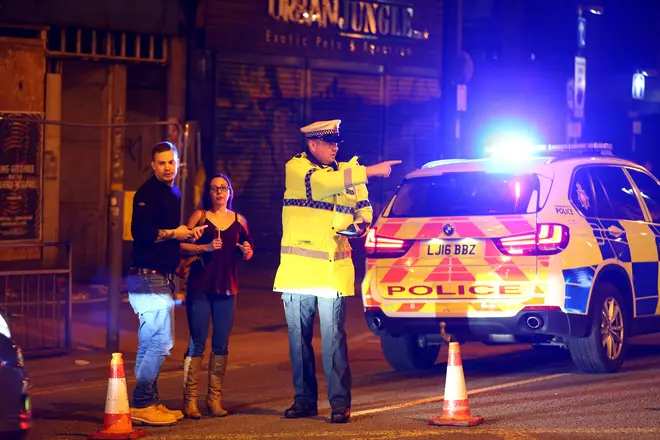
Ben Kentish 7am - 10am
14 April 2024, 21:30

Survivors of the Manchester Arena bombing are set to sue MI5 for its failings in the attack.
Some 250 survivors of the Islamist bombing of an Ariana Grande concert, which killed 22 people, have collectively submitted a group claim to an independent court that rules on the conduct of the intelligence services.
Ken McCallum, the head of MI5, made a rare public statement to say sorry for the failings last year. The spy chief also said the security service had made improvements.
An inquiry into the 2017 attack found it could have been stopped if MI5 had acted on intelligence received in the months prior to the bombing.
The security service dismissed two pieces of information about suicide bomber Salman Abedi as not related to terrorism.

Mr McCallum said last year that the attack was a terrible tragedy", and added that his thoughts were with the "families and friends of those killed, and with all those whose lives were changed by this appalling act of terrorism".
"MI5 exists to stop atrocities. To all those whose lives were forever changed on that awful night: I am so sorry that MI5 did not prevent the attack at the Manchester Arena," he added.
A statement from Hudgell Solicitors, Slater & Gordon and Broudie Jackson Canter said: "Legal teams representing injured survivors of the Manchester Arena bombing in 2017 can confirm that they have collectively submitted a group claim on behalf of more than 250 clients to the Investigatory Powers Tribunal."

The three lead firms representing the injured survivors' group added: "As it is an ongoing legal matter, we are unable to provide any further details, or comment further, at this stage."
MI5 declined comment on ongoing legal proceedings.
The Investigatory Powers Tribunal is an independent court, established under Section 65 of the Regulation of Investigatory Powers Act 2000 (RIPA).
The tribunal considers complaints under RIPA and claims under the Human Rights Act 1998.
It considers allegations of unlawful intrusion by public bodies, including the UK intelligence services, the police and local authorities, and investigates alleged conduct by or on behalf of the UK intelligence services whether or not it involves investigatory powers.